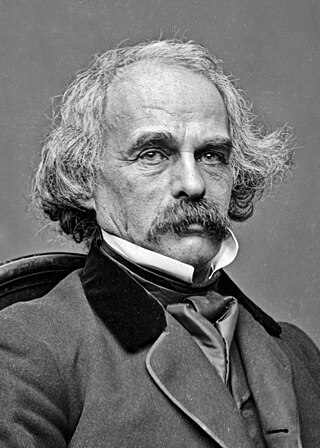
Nathaniel Hawthorne was an American novelist and short story writer. His works often focus on history, morality, and religion.
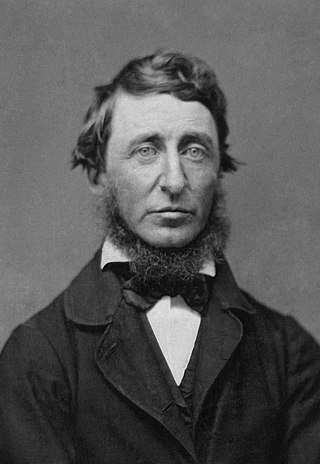
Henry David Thoreau was an American naturalist, essayist, poet, and philosopher. A leading transcendentalist, he is best known for his book Walden, a reflection upon simple living in natural surroundings, and his essay "Civil Disobedience", an argument for disobedience to an unjust state.

Julius Charles Hare was an English theological writer.

Samuel Hoar was a United States lawyer and politician. A member of a prominent political family in Massachusetts, he was a leading 19th century lawyer of that state. He was associated with the Federalist Party until its decline after the War of 1812. Over his career, Hoar developed a reputation as a prominent Massachusetts anti-slavery politician and spokesperson. He became a leading member of the Massachusetts Whig Party, a leading and founding member of the Massachusetts Free Soil Party, and a founding member and chair of the committee that organized the founding convention for the Massachusetts Republican Party in 1854.
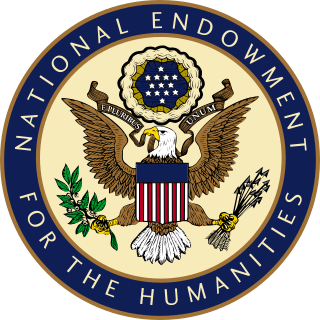
The National Endowment for the Humanities (NEH) is an independent federal agency of the U.S. government, established by the National Foundation on the Arts and the Humanities Act of 1965, dedicated to supporting research, education, preservation, and public programs in the humanities. The NEH is housed at 400 7th St SW, Washington, D.C. From 1979 to 2014, NEH was at 1100 Pennsylvania Avenue, N.W., Washington, D.C. in the Nancy Hanks Center at the Old Post Office.

George Payne Rainsford James, was an English novelist and historical writer, the son of a physician in London. He was for many years British Consul at various places in the United States and on the Continent. He held the honorary office of British Historiographer Royal during the last years of William IV's reign.
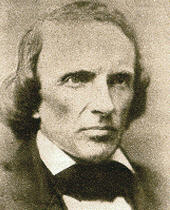
William Henry Channing was an American Unitarian clergyman, writer and philosopher.
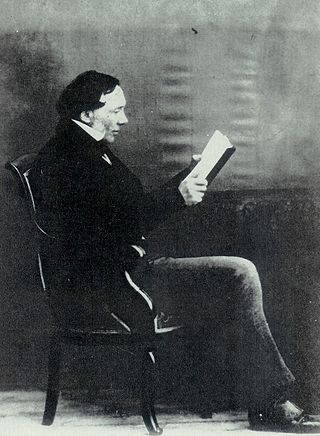
Robert Isaac Wilberforce was an English clergyman and writer.

Joseph Méry was a French writer, journalist, novelist, poet, playwright and librettist.

"A Walk to Wachusett" is an essay written by Henry David Thoreau recounting an excursion he took with a companion, Richard Fuller, from Concord, Massachusetts to the summit of Mount Wachusett located in Princeton, Massachusetts. Their journey, by foot, began on July 19, 1842. Traveling through Acton, Stow, Bolton, Lancaster and Sterling, they arrived in West Sterling by sunset and lodged overnight at a local inn, most likely the Milton Buss Inn and Tavern.
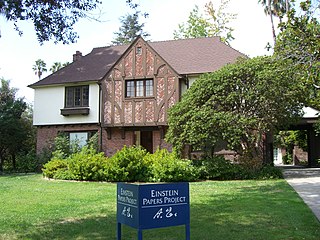
The Einstein Papers Project (EPP) produces the historical edition of the writings and correspondence of Albert Einstein. The EPP collects, transcribes, translates, annotates, and publishes materials from Einstein's literary estate and a multitude of other repositories, which hold Einstein-related historical sources. The staff of the project is an international collaborative group of scholars, editors, researchers, and administrators working on the ongoing authoritative edition, The Collected Papers of Albert Einstein (CPAE).
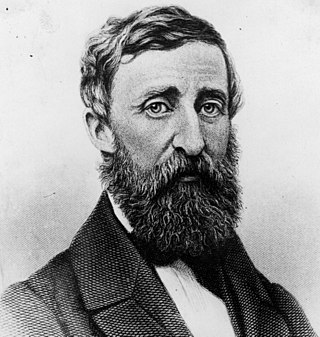
Walking, or sometimes referred to as "The Wild", is a lecture by Henry David Thoreau first delivered at the Concord Lyceum on April 23, 1851. It was written between 1851 and 1860, but parts were extracted from his earlier journals. Thoreau read the piece a total of ten times, more than any other of his lectures. "Walking" was first published as an essay in the Atlantic Monthly after his death in 1862.

The Boston Museum (1841–1903), also called the Boston Museum and Gallery of Fine Arts, was a theatre, wax museum, natural history museum, zoo, and art museum in 19th-century Boston, Massachusetts. Moses Kimball established the enterprise in 1841.
Amory Hall was located on the corner of Washington Street and West Street in Boston, Massachusetts, in the 19th century. Myriad activities took place in the rental hall, including sermons; lectures by Henry David Thoreau, Ralph Waldo Emerson, William Lloyd Garrison; political meetings; exhibitions by Rembrandt Peale, George Catlin, John Banvard; moving panoramas; magic shows; concerts; and curiosities such as the "Nova Scotia Giant Boy."
The Papers of James Madison project was established in 1956 to collect and publish in a comprehensive letterpress edition the correspondence and other writings of James Madison, the Virginia statesman best remembered for his public service as "Father of the Constitution" and fourth president of the United States.
Henry Thomas Riley was an English translator, lexicographer, and antiquary.
The California Digital Newspaper Collection (CDNC) is a freely-available, archive of digitized California newspapers; it is accessible through the project's website. The collection contains over six million pages from over forty-two million articles. The project is part of the Center for Bibliographical Studies and Research (CBSR) at the University of California Riverside.
A Yankee in Canada, with Anti-Slavery and Reform Papers is an anthology of works by Henry David Thoreau, edited by his sister Sophia Thoreau and his friends William Ellery Channing and Ralph Waldo Emerson. It was published in 1866, after Thoreau’s death, by Ticknor and Fields, the Boston firm that had published Walden.
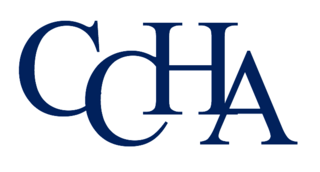
The Community College Humanities Association (CCHA) is a formal, non-profit association of faculty members from the nation's community colleges. The organization seeks to advocate for the humanities in the nation's two year colleges; although, it does also engage in work with four-year institutions, and much of the association's work is done through grants and affiliations with the National Endowment for the Humanities.














